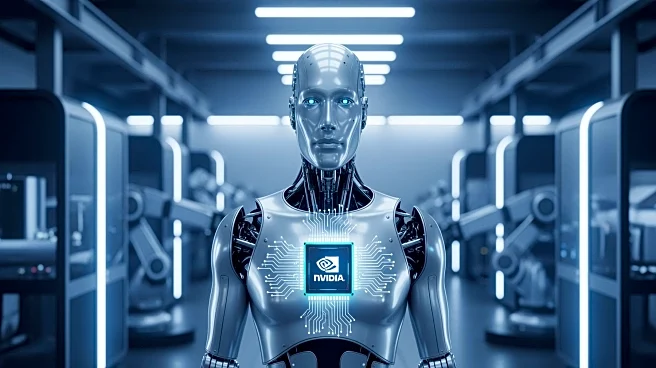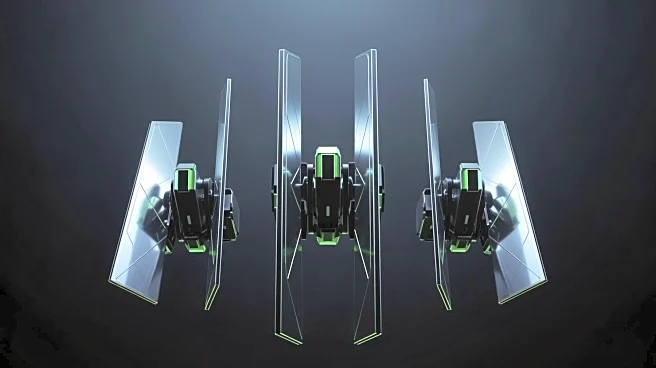What's Happening?
Foxconn, a major manufacturing partner for Apple, is set to introduce Nvidia-powered humanoid robots on its production lines within the next six months. This initiative represents a significant move towards
AI automation in manufacturing. Foxconn CEO Young Liu announced that these robots will be tasked with assembling AI servers for Nvidia, marking the first deployment of such technology in the company's history. Foxconn, also known as Hon Hai Precision Industry, is a key player in the tech manufacturing sector, producing goods for companies like Apple, Microsoft, Google, Sony, and Nvidia. The company operates several plants in the United States, including locations in Texas, California, and Wisconsin, with plans to expand to Ohio. Nvidia is collaborating with Foxconn to establish a next-generation AI-powered factory in Houston, which will utilize Nvidia's Isaac GR00T N technology to enable autonomous robot operations.
Why It's Important?
The introduction of humanoid robots in Foxconn's factories signifies a transformative shift in manufacturing processes, potentially enhancing efficiency and productivity. This move could set a precedent for other manufacturers to adopt AI-driven automation, impacting the broader tech industry. The collaboration between Nvidia and Foxconn highlights the growing importance of AI in industrial applications, which could lead to increased demand for AI technologies and expertise. However, the integration of robots alongside human workers presents challenges in terms of safety and logistics, requiring careful planning and execution. The success of this initiative could influence future investments in AI and robotics, shaping the landscape of manufacturing and employment in the tech sector.
What's Next?
Foxconn has yet to disclose specific details about the capabilities and number of humanoid robots to be deployed. As the company prepares for this transition, it will need to address potential safety concerns and logistical challenges associated with integrating robots into human-centric work environments. The development of the AI-powered factory in Houston will serve as a benchmark for future smart factories, potentially influencing industry standards and practices. Stakeholders, including tech companies and labor organizations, will likely monitor the impact of this automation on employment and production efficiency. The success of this initiative could pave the way for further advancements in AI-driven manufacturing.
Beyond the Headlines
The deployment of humanoid robots in manufacturing raises ethical and cultural questions about the future of work and the role of automation in society. As AI technologies become more prevalent, there may be concerns about job displacement and the need for workforce retraining. Additionally, the integration of robots into human workspaces necessitates discussions about safety protocols and the ethical treatment of automated systems. Long-term, this shift could lead to changes in labor laws and regulations, as well as cultural perceptions of AI and robotics in everyday life.









